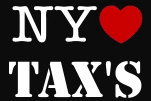
Recently, I had a chance to interview Ms. June Maniacek, the Town of Dresden Assessor. Everyone is concerned about rising taxes, so while some of our conversation might seem a bit arcane, it directly relates to the property taxes we all pay. Ms. Maniacek has been the Dresden Assessor for many years and she was gracious enough to sit down with me and answer all of my questions.
To begin, you are charged by law with setting the assessment roll in the town of Dresden. Could you tell us exactly what this means and what by law you are charged with doing?
I must prepare and file an assessment roll as of July 1st of each year which is utilized by the various taxing jurisdictions to spread their tax levies in a fair and equitable manner across the assessing unit.
So you assess every parcel in the town with a value?
Yes. Then the tax rate (which is determined by the budget and total taxable assessed value in the particular jurisdiction), is then applied to each individual assessment to determine the portion that parcel will pay.
What happens when different towns are in one taxing jurisdiction, say the County?
The Equalization Rate comes in to play. The ER rate is calculated by dividing the State’s estimate of the Town’s Full Market Value into the total assessed value as determined by the assessor. Each Town’s ER will determine the Full Market Value in each Town, and then their share of the total tax levy will be apportioned based on their % of the total taxable value in the county.
In the school tax bill that property owners recently received, there was a significant increase in Dresden taxpayers share due to a change in the equalization rate set by the state even though there was no increase in the school budget. Could you explain what the equalization rate is in simple easy to understand language?
The State determined that the overall value of property in Dresden was a larger portion of the overall value of the district. (This could result from a decline in market value in the Town of Whitehall, without any change in Full Market Value occuring in the Town of Dresden.)
This seems a bit strange that the equalization rate would be dropping and that the state of NY would be basically saying that property in Dresden is worth more. Everyone knows that property isn’t selling and that there is a glut of homes on the market in Dresden. Shouldn’t the equalization rate go up during bad economic times? Do you see this happening soon?
The most recent ER was based on market conditions from July 1, 2008 to June 30, 2009. More recent market trends through July 1, 2010 will not be reflected until the ER rate for 2011.
Over the last 10 years, Washington County’s budget and the Whitehall School district’s budget have really grown. People shouldn’t be mad at you because you don’t have anything to do with setting budgets, right?
That is correct. My job is to fairly distribute the tax burden. In addition I also administer exemptions which can impact tax rates. There are a number of low income property owners that pay little or no school taxes. In these cases their tax burden is not forgiven but shifted on to the remaining taxpayers.
So you’re saying you have nothing to do with budgets and spending. You just set the apportionment on how those budgets will be divided by the property owners in Dresden?
My impact is nominal. My salary and incidental expenses are part of the Town’s budget. For every tax dollar paid:
.12 goes to support the Town of Dresden and the Fire Company.
.30 of every tax dollar goes to support the County, and
.58 of every tax dollar paid goes to the school district.
If a non-profit group, like an environmental conservancy organization, purchased a significant amount of acreage from a private landowner would that acreage then be eligible to come off the tax rolls?
It may. The courts have been very lienient as to what constitutes a non-profit, or exempt purpose. Until the State Legislature makes a definitive determination, this probably will continue.
Have you seen towns where environmental organizations buy large tracks of land and this causes taxes on private property to rise?
Yes. It has happened in the Town of Putnam. If the State, in turn, purchases the holdings, it returns to the tax rolls. However, none of this land will ever be developed.
I know you make every effort to set the yearly assessment roll fairly. However, sometimes people might see your assessment as wrong. Can you explain the process of correcting an error or appealing your assessment?
Anyone that has a question should first contact me. If they are not satisfied with my response, they may file a formal complaint with Dresden Board of Assessment Review. If they are still not satisfied with their formal complaint, they may file a Small Claims Proceeding (for residential properties) or appeal to the courts (commercial, vacant, etc.)
Dresden has a significant percentage of state owned land in its boundary. Do you also assess property in the town owned by NY State?
I valued the State Owned Land in our last reassessment using the same criteria as for valuing privately owned forest land. The State later provided me with their appraisals, which were higher than mine. I accepted those appraisals, and added them to the Assessment Roll. As a result, there was a shift away from the privately owned properties to the State.
Thank you for taking the time to answer these questions for the readers of the Huletts Current.
For those that would benefit from a more structured, detailed explanation, please follow this link.
http://www.orps.state.ny.us/video/index.cfm




